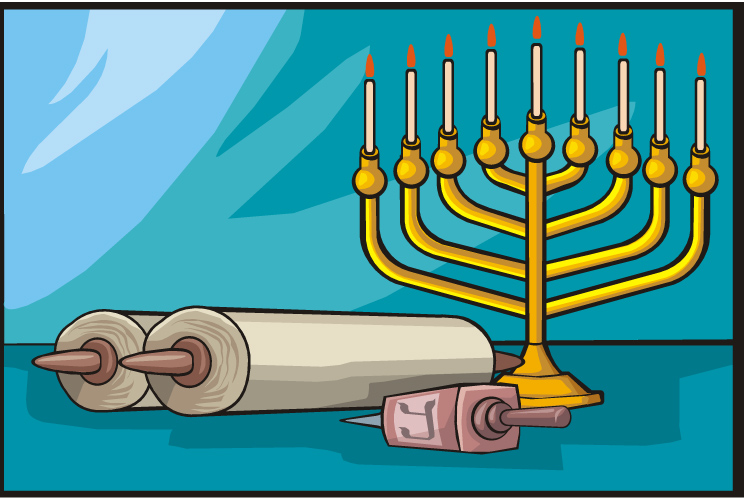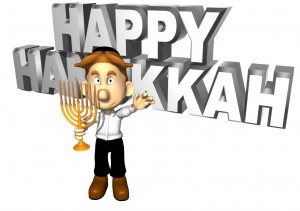Though Hanukkah is a non-commanded man-made biblical holiday, it is still rich in spiritual meaning for the redeemed follower of Yeshua. Though it falls during the Christmas season, it, in many ways is the opposite of Christmas, yet shares a common theme with Christmas. Learn about these and more in this video.
Tag Archives: Hanukkah
More on Hanukkah (aka Chanukkah or Chanukah) — part 2 or 3 or whatever…
Hanukkah is a traditional, non-biblical Jewish holiday that falls in December and commemorates the Jews’ military defeat of the pagan Greeks and their dedication of the temple in Jerusalem after the heathens had desecrated it through idolatry and forbidden biblical practices. According to tradition, as part of the rededication ceremonies, some holy olive oil was needed to light the temple’s menorah, yet none could be found, until someone found a small vessel containing only enough oil to last for a day. This oil was poured into the menorah, and miraculously the oil burned for eight days, which is why Hanukkah is celebrated for eight days. The historical events behind Hanukkah are chronicled in the apocryphal Book of First Maccabees (chapters one and two). These events occurred about 160 years before the birth of Yeshua (Jesus).
Though Hanukkah is a minor holiday, and is not a commanded biblical festival, there is record in the Testimony of Yeshua (New Testament) that Yeshua was at the temple in Jerusalem during Hanukkah (a Hebrew word meaning “to dedicate”), also known as the Feast of Dedication (John 10:22).
Hanukkah should not be viewed as a replacement for Christmas and in fact pre-dates the Christian Christmas by hundreds of years. It is a stand-alone holiday that has nothing to do with Christmas. In reality, Christmas is the melding together of some Biblical beliefs (i.e., the birth of Yeshua, although he wasn’t born in December!) with many traditions that are undeniably pagan in origin (see any encyclopedia on the subject of the origins of Christmas), including the biblically forbidden and idolatrous heathen practice of cutting, setting up and decorating a tree (Jer 10:1–8), which Scripture refers to as a vanity tree and regards as a foolish heathen activity (Jer 10:8). On the other hand, Continue reading
From the Archives: Chanukah or Christmas, Neither or Both?
Since tonight begins the first day of Hanukkah, I thought it would be appropriate to direct you to an article that I wrote for this blog last year on Chanukah (or Hannukah) and Christmas. In this post, I contrast the two holidays and show how Christmas is about syncretism with paganism, while Hanukkah takes a stand against it. At the same time, and on the positive side, both holidays have the idea of light as their theme, which points to Yeshua the Messiah as the Light of this world. Read more about this at
http://hoshanarabbah.org/blog/2012/12/08/chanukah-or-christmas/
Celebrating Hanukkah from a Correct Perspective
This year Hanukkah starts on the night of Wednesday, November 27 and ends on Wednesday, December 5. (For free, printable monthly calendars, go to http://hoshanarabbah.org/calendars.html.)
In some Messianic circles, more is made of Hanukkah than the biblical feasts. This is wrong.
In some Messianic circles, Hanukkah (and Purim) is listed along with the biblical feasts giving the impression that this holiday is equal to or only slightly less important than the biblical feasts. This also is wrong.
Hanukkah is mentioned only once in the Scriptures, in the Gospels, by it’s English name — the Feast of the Dedication (John 10:22). There we read that Yeshua was at the temple in Jerusalem during this holiday. This scripture doesn’t say whether he was celebrating it or not, so we don’t know.
In a certain sense, Hanukkah was to the ancient Jews what the Fourth of July or Thanksgiving is to Americans — a secular holiday commemorating a historical event. It is Continue reading



